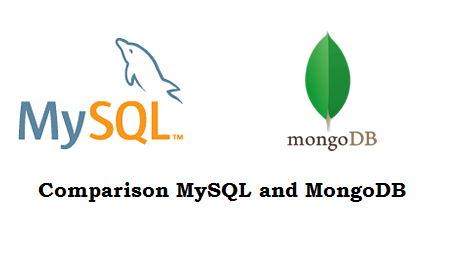| Features | MySQL | MongoDB |
| Logo |
|
|
| Type of Database? | Relational Database | Document-oriented database |
| Initial release | 23 May 1995 | 13 October 2015 |
| Current Stable Version | 5.7.18 / 10 April 2017 | 3.4.5 / 14 June 2017 |
| Written in | C/C++ | C/C++, JavaScript |
| Open Source | Yes | Yes |
| License | GPL (version 2) or proprietary | GNU AGPL v3.0 (drivers: Apache license) |
| Offical Website | http://www.mysql.com | https://www.mongodb.org |
| How stored Data | In Structed, data is stored in tables. | Unstructed, data is stored in Collection in JSON Format. |
| Terminology | Table Row Column Joins |
Collection Document Field Embedded documents, linking |
| Normalization | used to minimize data redundancy | Normalization is obsolete for MongoDB |
| Get data from two different tables | Joins are used | References are used |
| Transactions vs Atomic Updates | MySQL Support | No supported |
| How to get data | SQL Query is used | you need to used functions with parameter |
| Security | MySQL uses privilege-based security model. | MongoDB security features include authentication, authorization and auditing |
| Select Query | SELECT * FROM users WHERE name LIKE "%Web%"; |
db.books.find({"name": {
"$regex": "Web" }});
|
| Insertion Query | INSERT INTO users (user_id, age, status)
VALUES ("100", 20, "Active")
|
db.users.insert({ user_id: "100",
age: 20, status: "Active"})
|
| Update Query | UPDATE users SET status = "Active" WHERE age > 25 |
db.users.update( {
age: { $gt: 25 } }, { $set: {
status: "Active" } }, { multi: true }
)
|
| Insert data Speed | Normall | Much Faster as compare to MySQL |
| Best Database for Very-2 Heavy Site | Not | MongoDB is better |
| DBA Required | Yes, For better performance | Not required |
| Rich Data Model | No | Yes |
| Dyamic Schema | No | Yes |
| Typed Data | Yes | Yes |
| Data Locality | No | Yes |
| Field Updates | Yes | Yes |
| Easy for Programmers | No | Yes |
| Complex Transactions | Yes | No |
| Auditing | Yes | Yes |
| Auto-Sharding | No | Yes |
We are Web Technology Experts Team who provide you Important information on Web Development, Interview Questions and Answers, live project problem and their solution and online free tutorials.


